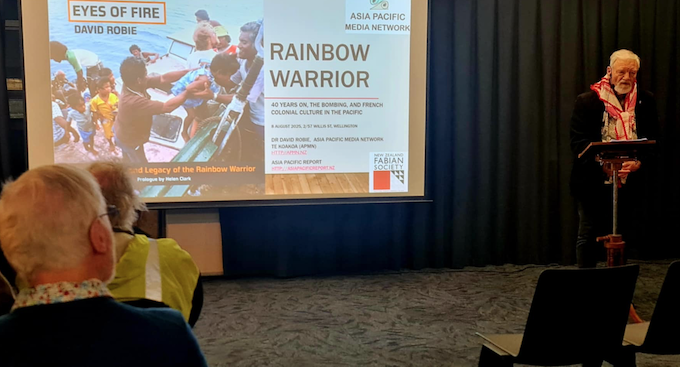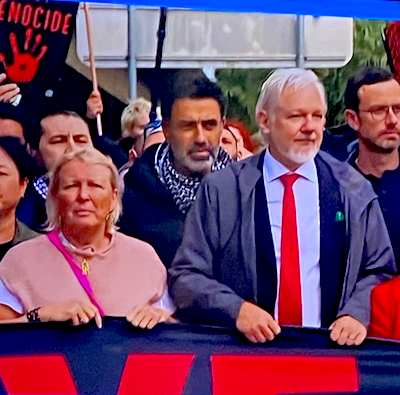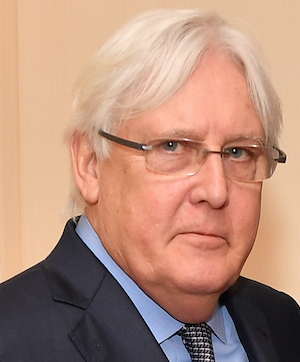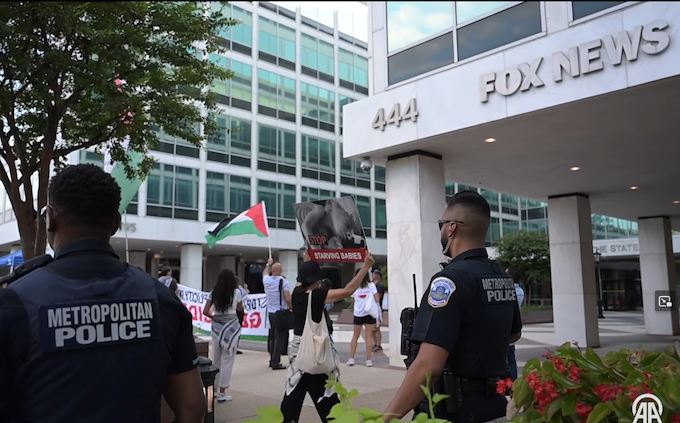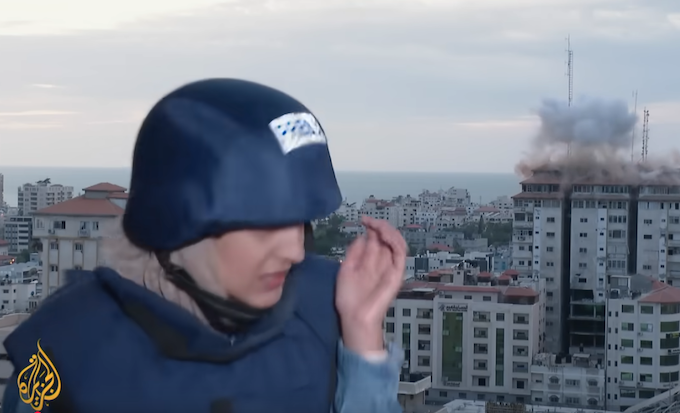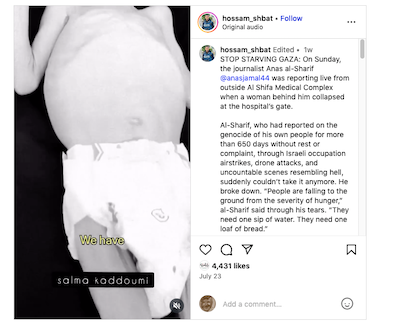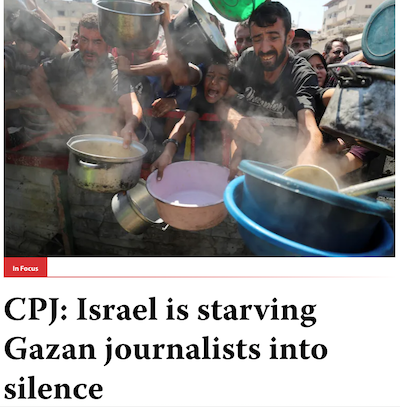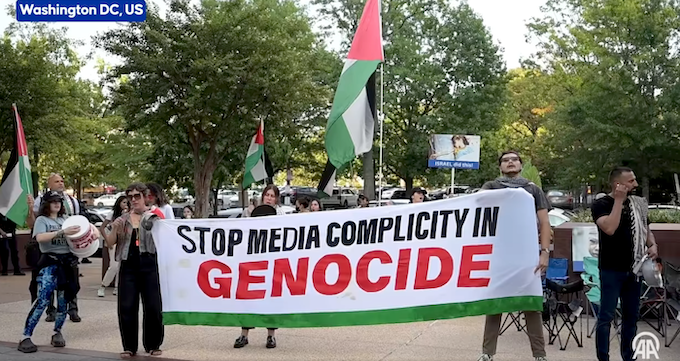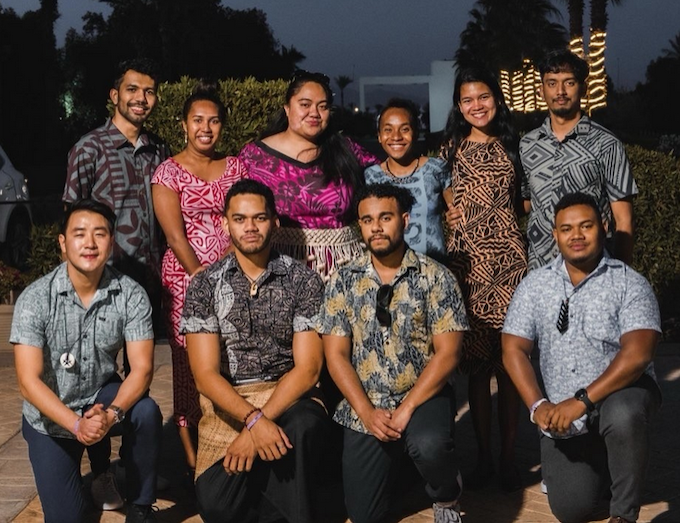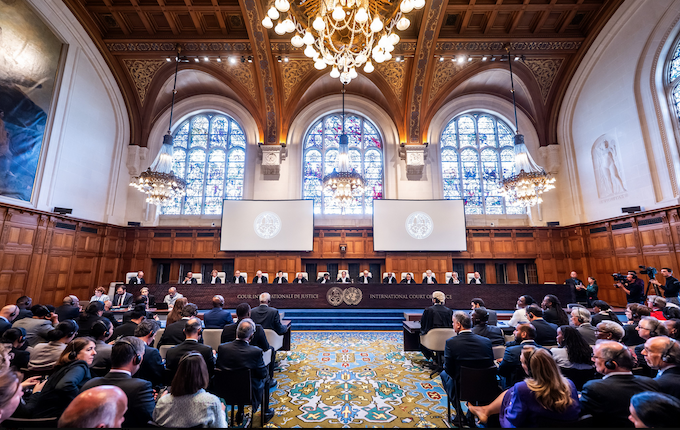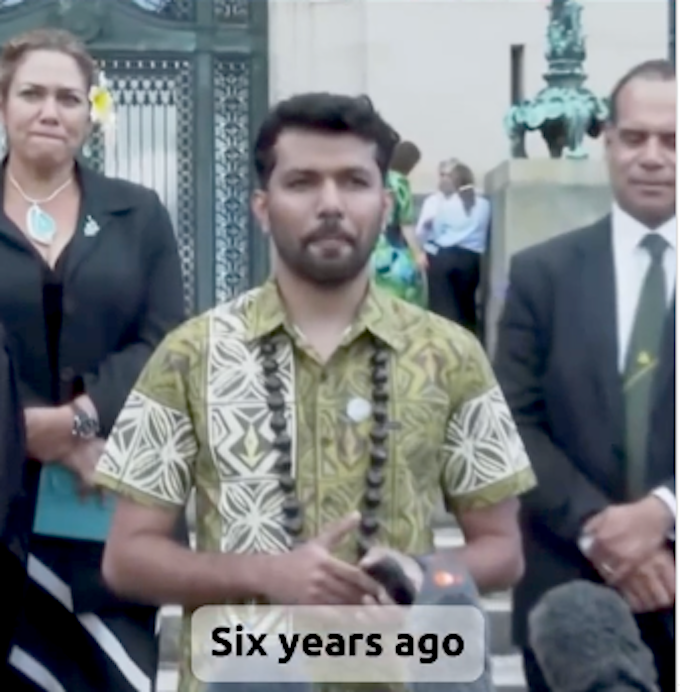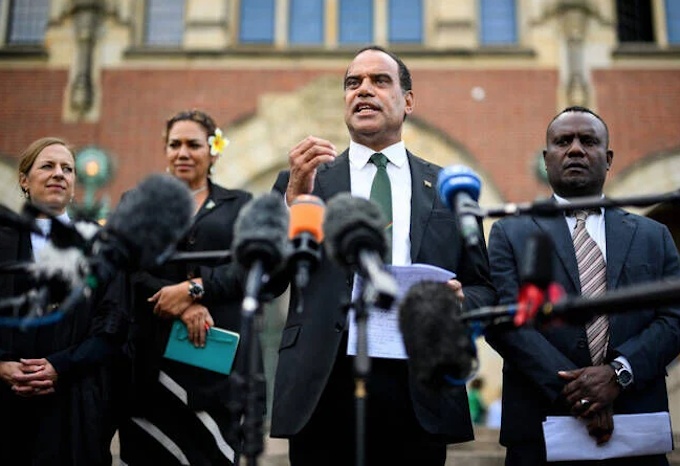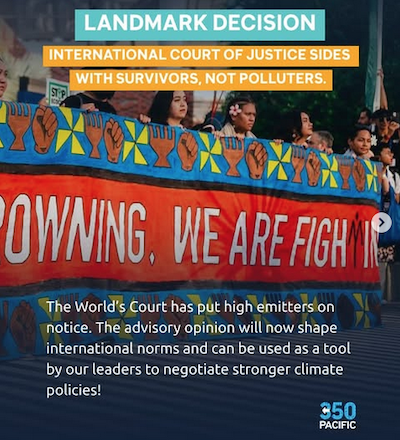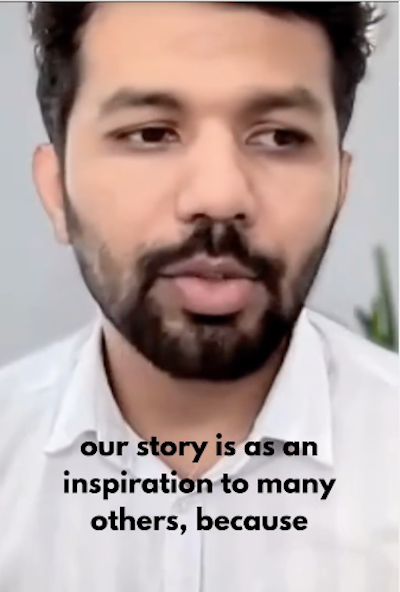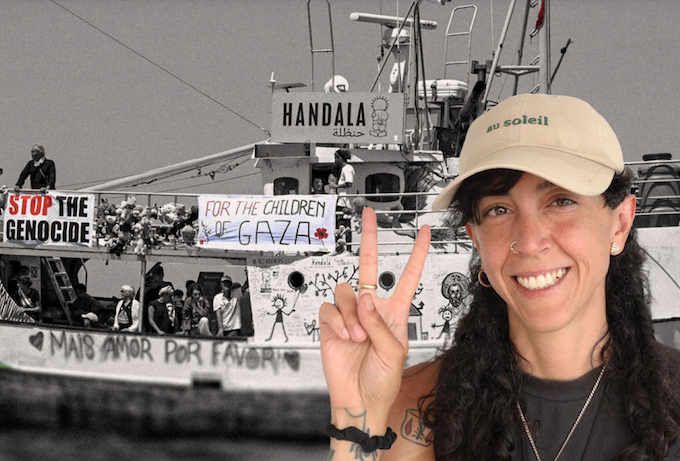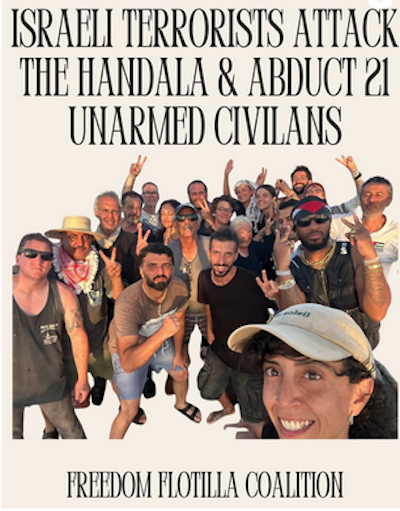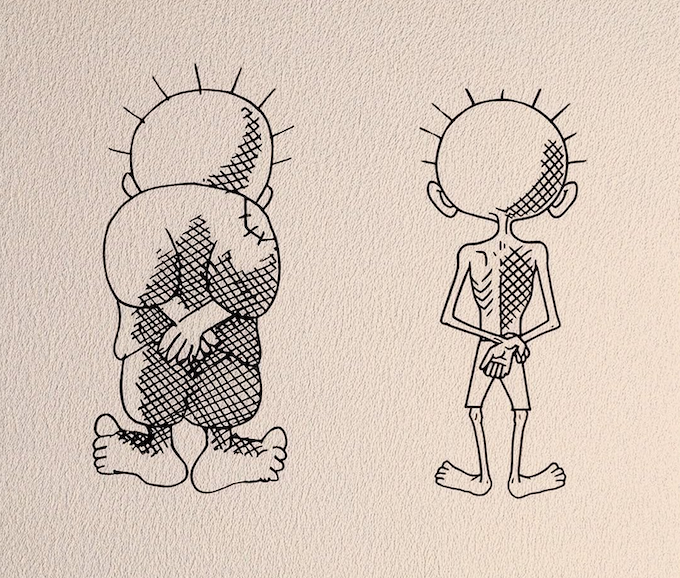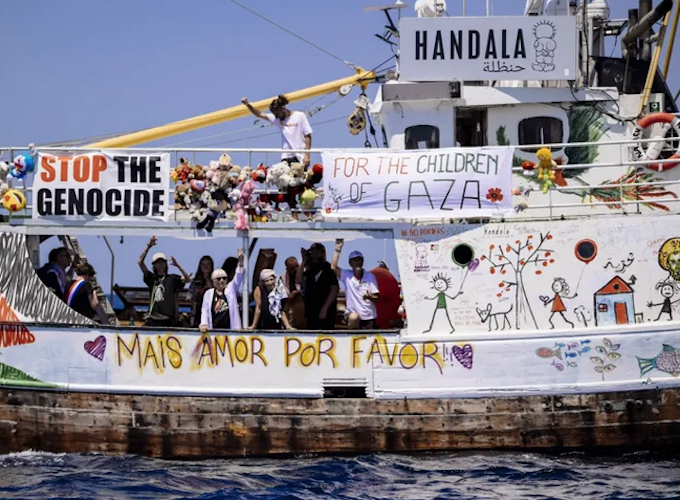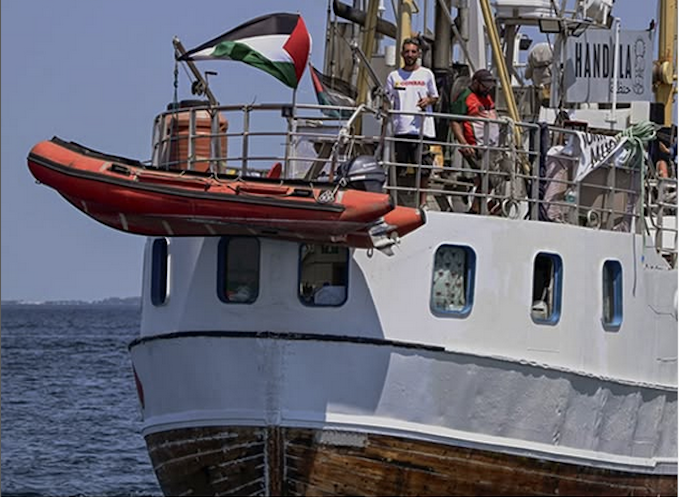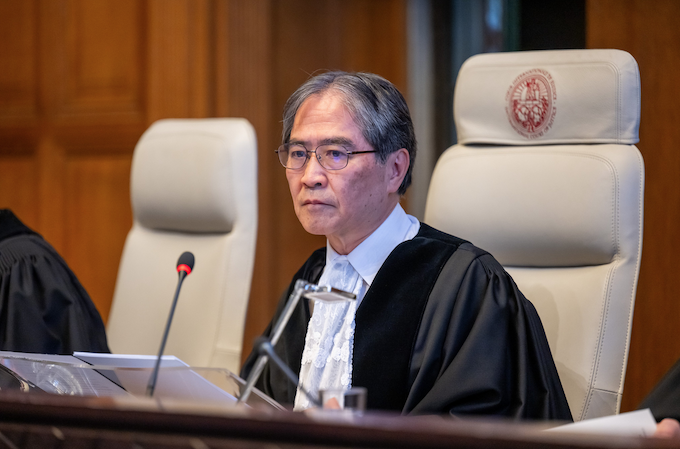AMY GOODMAN: This is Democracy Now!, democracynow.org. I’m Amy Goodman, with Juan González.
Global condemnation is mounting over Israel’s assassination of one of the most prominent journalists in Gaza, the Al Jazeera correspondent Anas al-Sharif, along with four of his colleagues at the network and another freelance journalist.
UN Secretary-General António Guterres is calling for an independent investigation after the five Al Jazeera journalists were killed in a targeted Israeli strike outside Al-Shifa Hospital in a tent clearly marked in Gaza City. European Union officials and international press freedom groups have also denounced the assassinations.
The sixth journalist, freelance reporter Mohammed al-Khalidi, was also killed in the same strike. Minutes before the strike, al-Sharif posted to X, “If this madness does not end, Gaza will be reduced to ruins, its people’s voices silenced, their faces erased — and history will remember you as silent witnesses to a genocide you chose not to stop.”
On Monday, crowds of mourners gathered for a funeral procession for al-Sharif and his colleagues, marching from Al-Shifa to Sheikh Radwan Cemetery in central Gaza, carrying the journalists’ bodies wrapped in white sheets.
A dark blue flak press jacket and a Palestinian flag were placed on al-Sharif’s remains. People embraced as they decried Israel’s relentless targeting of journalists in Gaza.
Meanwhile, at rallies and vigils worldwide, people are demanding accountability for the attack on journalists, including in Tunisia, Belfast, Dublin, Berlin, London, Oslo, Stockholm and Washington, DC.
For more, we go to Geneva, Switzerland, where we’re joined by Irene Khan, UN special Rapporteur on Freedom of Opinion and Expression. She served as secretary-general of Amnesty International from 2001 to 2009.
Irene Khan, welcome back to Democracy Now! In late July, you publicly denounced Israel’s threats against Anas al-Sharif. Can you talk about what you understood at that time, and then this young 28-year-old reporter’s response to your press statement?
IRENE KHAN: Yes, well, Anas actually contacted me, and Al Jazeera contacted me to tell me of this impending threat on his head. They had seen it before. He’s not the first one, as you know.
There are some — anything between 26 to 30 journalists — who have been targeted in this campaign of assassination. And Anas wanted me to go public, he wanted others to go public, to stop what Israel was doing.
But at the same time, he thanked me for my support, and then he said nothing would stop him from speaking the truth. And in a way, he signed his own death warrant by that, because, as you know, he and the others, Al Jazeera’s entire team in northern Gaza, were killed, murdered, just as Israel ramps up its military action on the city, Gaza City.
So, there is a clear pattern here of killing journalists to clear the path, to silence voices, to stop the international, global opinion from being informed of the genocide in Gaza.
Assassination: Israel’s killing of Palestinian journalist Anas al-Sharif Video: Democracy Now!
JUAN GONZÁLEZ: And, Irene Khan, the number of journalists — so, more than 200 have been killed in Gaza. That’s more than all the journalists killed in World War I, World War II, Korea, the Korean War, the Vietnam War and the Afghanistan War combined.
Your sense of the Israeli impunity here in being able to basically kill the corps of journalists that are still able to report from Gaza?
IRENE KHAN: Well, you also have to take into account that Israel has refused to give access to international media. So these are all local Gazan journalists who are putting their lives on the line to keep the world informed. Many of them — you named some 200 — many of them, of course, have been killed in the intensity of the battle. Many of them have been killed while asleep in their own apartments. But these cases, the cases of Anas now, and his colleagues, and a number of other cases of targeted killing, is really murder.
It is not killing in the context of war. It is a deliberate strategy to stop independent voices reporting. So it’s as much a threat to independent journalism as it is to the journalists themselves, as well as a blatant attempt by the Israelis to stop the world witnessing what they are doing.
JUAN GONZÁLEZ: And these killings also came as the Israeli government announced they’re unleashing a new operation in the area of Gaza. Who will be left to document this operation now?
IRENE KHAN: Well, absolutely. And that is why Anas got in touch with me, because he realised what was happening. You know, from his message on LinkedIn and from his message that he has sent to me and to others, it was very, very clear.
He has been there on the ground since October 2023. He could see the pattern. He could see what was happening. He knew they were coming for him.
And that is why it is incumbent on all of us now not to just condemn, but actually to act, before independent media is totally obliterated from Gaza.
AMY GOODMAN: Irene Khan, I want to ask what you’re calling for, and the significance of Netanyahu holding this news conference on Sunday and saying — he has now said that the Israeli military can bring in journalists, but they’re most concerned about protecting their safety.
A few hours later is when Israel assassinated these six journalists. Now, it is the first time, NPR reports, since October 2023 that Israel so quickly took responsibility for their assassination.
You know, compare it to Shireen Abu Akleh, May 11, 2022, when Israel said it was not clear, and then, you know, so many studies were done, but it became very clear. Talk about what you are calling for at this point.
IRENE KHAN: It’s not actually an admission of taking responsibility, because there is no accountability in it. It’s actually a brazen attempt to show the world that the Israeli army can work as it wishes, regardless of international humanitarian law that protects journalists as civilians.
Now, what I’m calling for is, of course, independent investigation, truly independent investigation. But I’m also calling for protection of journalists on the ground and for access to international journalists.
Israel always covers these assassinations and murders with allegations and smear campaigns — the journalists are simply agents of Hamas or members of Hamas — and that kind of gives Israel a veil of impunity.
It’s important for international journalists to be on the ground so they can actually investigate and expose this false story and the string of assassinations that Israel is carrying out.
And I think we need to remember the message that Israel’s action is sending to the rest of the world, because there are other spots, other conflict areas, where also others are learning that you need to be just brazen and go ahead and kill journalists, and you can get away with it.
AMY GOODMAN: Irene Khan, we’re speaking to you in Geneva, Switzerland — Geneva, the Geneva Conventions. Can you talk about how the conventions specifically protect journalists?
IRENE KHAN: Well, the convention gives journalists civilian status, which means that, like all other civilians, they should not be targeted during the war.
The problem is the journalists are not just civilians. They are the kind of civilians that have to go to the frontline and not run away somewhere else. You know, they are not like women and children, who can move and seek shelter elsewhere.
They have to be where the fighting is. And that exposes them. They are much more like humanitarian workers. And journalists need to be recognised as humanitarian workers. There needs to be — I believe there needs to be additional protection given to them, because it shows how vulnerable they are, on the one hand, to attacks, and, on the other hand, how important their work is to the rest of the world, to any peace process, to any attempt to have accountability and justice for the victims.
JUAN GONZÁLEZ: Last month, the union representing reporters at the French press agency AFP warned that the agency staff were in danger of starving to death, and they issued an open letter condemning what Israel was doing in terms of denying food, not just to the population in general, but also to journalists, as well.
Your response?
IRENE KHAN: Well, absolutely. These journalists are local journalists, as I said, so they have faced all the problems that the population is facing. They’ve had their own families killed. They have to hunt for food, even as they hunt for news.
So, they have been put in a terrible situation. And that’s why Israel has to open the gates, not under military protection, but allow journalists independently to come and investigate. It has to stop the starvation, the blockade. It has to allow humanitarian assistance to come in. And it has to agree to a ceasefire and, of course, stop the genocide.
AMY GOODMAN: I want to end with the words of Anas al-Sharif himself. Anticipating his own murder by Israeli forces, he wrote a preprepared message that was posted on his X account after his death. Al Jazeera read part of his message on air.
AL JAZEERA REPORTER: “If these words reach you, know that Israel has succeeded in killing me and silencing my voice, I have lived through pain in all its details, tasted suffering and loss many times, yet I never once hesitated to convey the truth as it is, without distortion or falsification, so that God may bear witness against those who stayed silent and accepted our killing.”
He ends, “Do not forget Gaza… And do not forget me in your sincere prayers for forgiveness and acceptance.”
AMY GOODMAN: The words of Anas al-Sharif, posted after he was killed by the Israeli military along with five other journalists. Five of them were with Al Jazeera.
Irene Khan, I want to thank you so much for being with us, UN Special Rapporteur on Freedom of Opinion and Expression, speaking to us from Geneva, Switzerland. To see our interview with the managing editor of Al Jazeera, go to democracynow.org.
Democracy Now! is produced with Mike Burke, Renée Feltz, Deena Guzder, Messiah Rhodes, Nermeen Shaikh, María Taracena, Nicole Salazar, Sara Nasser, Charina Nadura, Sam Alcoff, Tey-Marie Astudillo, John Hamilton, Robby Karran, Hany Massoud, Safwat Nazzal. Our executive director is Julie Crosby.
I’m Amy Goodman, with Juan González, for another edition of Democracy Now!
The original content of this programme is licensed under a Creative Commons Attribution-Noncommercial-No Derivative Works 3.0 United States Licence.
This post was originally published on Asia Pacific Report.


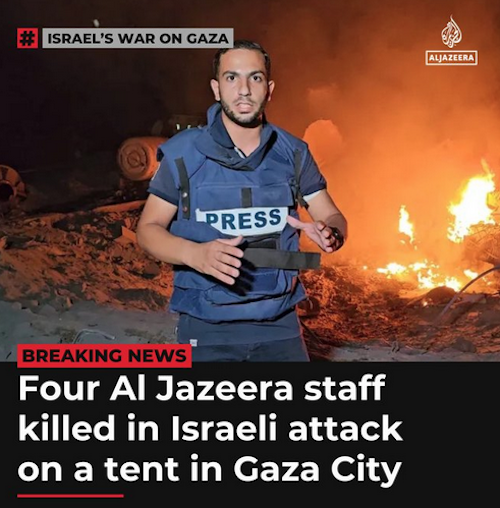
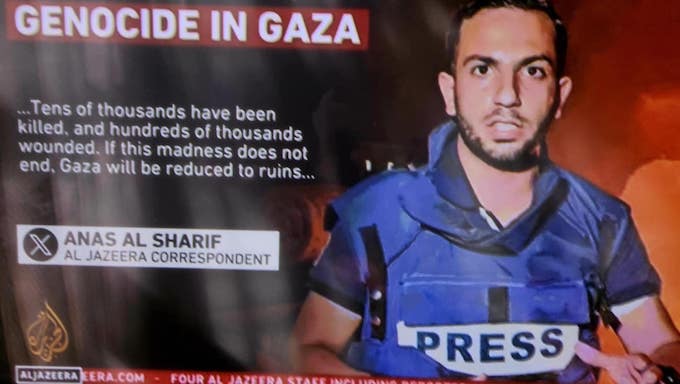
 LIVE: Al Jazeera Arabic reporter Anas Al Sharif was killed in an Israeli strike on a tent in Gaza City.
LIVE: Al Jazeera Arabic reporter Anas Al Sharif was killed in an Israeli strike on a tent in Gaza City. 